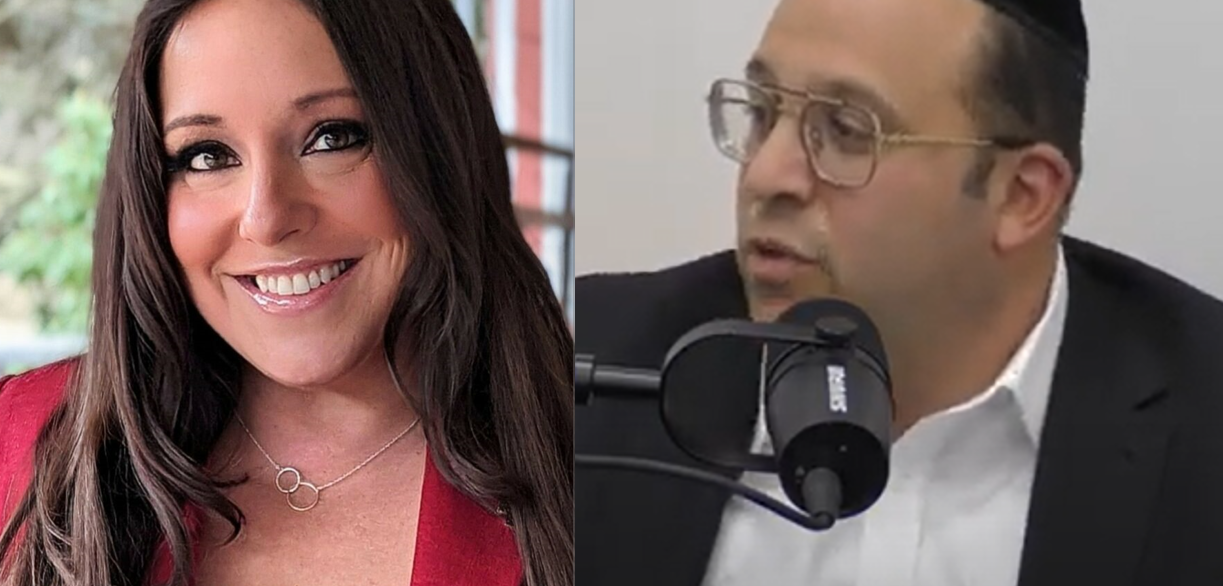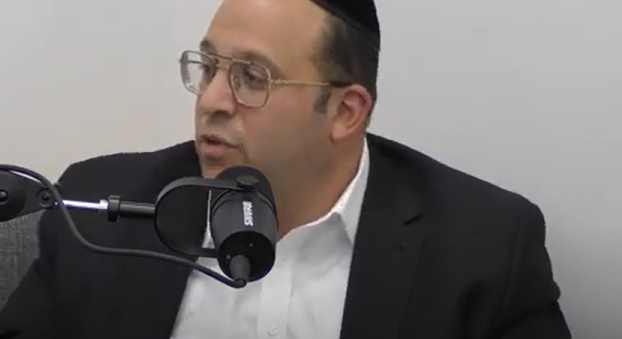With less than a week to go until Election Day, it’s hard to go anywhere without people discussing what’s going to happen on November 5. For the American Jewish population, it seems that this presidential election cycle has been more stressful than past ones due to the atrocities on October 7 in Isreal and its aftermath in Gaza. Another point of contention is the subsequent rise in antisemitism throughout the United States, especially on college campuses, and how both parties have handled or say they would’ve handled (if in power) the contentious situation.
Before looking at the broader scope of how Jewish people are planning to vote across the country, let’s take a look at New Jersey, and the possible impact Jewish voters would have on the presidential outcome. Democratic State Assemblyman Avi Schnall represents the 30th legislative district consisting of Lakewood which is home to the largest Yeshiva in the world and in turn, a large Orthodox Jewish population. Although Schnall is a Democrat, he said his district has always been Republican leaning, “In the last election, Lakewood was considered the Trumpiest town in New Jersey with 84% of the vote, and this was before October 7.” With that said, he said there are Democrats in his district too, but his voters don’t vote purely along party lines – they vote more for the person than the party, especially in local and state elections. For example, Schnall is a Democrat and so is Lakewood’s mayor.
Going beyond the New Jersey Orthodox community, Schnall believes the overall Jewish community of all affiliations (conservative, reform, reconstructionist) is trending toward the Republicans on a federal level due to international politics. He told me, “I think speaking out about Israel’s right to defend itself and for calling out terrorism for what it is, on a national level, one party has differentiated itself from how the other speaks on the current situation. The current administration has definitely given tremendous amount of military and financial support and lots of arms, but it’s not only Israel, it’s the after-effect of what’s been going on in college campuses that has shaken up Americans.”

Republican State Senator Robert Singer for District 30, who is also Jewish, agrees. Singer added, “I was president for years of a conservative synagogue, so I hear from both angles and I’ll tell you, it is spreading past Orthodox who have been a strong supporter for Republicans because people are seeing what is happening with the rise of antisemitism at college campuses. There’s an understanding we need to stop this and they’re hearing this from the Republican party that this will not be tolerated. They are not hearing this from the Democratic party.”
Essex County Democratic Chairman LeRoy Jones says Jewish people have historically registered as Democrats and he doesn’t see registered Democrats going toward Trump. Jones said “Right now, we’re chasing vote by mail statewide and we see about 60% increase in turnout on the Jewish Democratic voters.” He also added about the Harris campaign, “It’s a campaign that’s inclusive of all communities, she’s expressed her support with respect to Isreal and Isreal being an important ally, and she’s expressed concern for loss of Palestinian lives, the release of hostages, so those are things that voters are going to be impacted by and their vote will reflect that.”
So going beyond New Jersey, what is the trend nationwide for Jewish voters?
According to the Republican Jewish Coalition (RJC), historically, the Orthodox community has been much more supportive for Republicans, Reform Jews more supportive of Democrats, and Conservative Jews more or less breakdown 60/40. The RJC spent $15 million on a Jewish outreach campaign, the largest amount ever from any group targeting the Jewish community. RJC National Political Director Sam Markstein said, “There is no question there is a hemorrhaging of support amongst Jewish voters for Democrats. I think what you’re seeing now for the first time is across the board, you’re seeing Jewish voters who have never voted Republican in their lives, make the consideration this year given what’s going on in Isreal and here on our streets and college campuses.”
Nationally, Jews are a minority, but their votes do make a difference. Markstein mentioned, “that in a lot of these places where states are going to be decided by a couple of thousand voters, every single marginal shift could make that difference, and places like Pennsylvania, there’s 400,000 Jewish American voters in that state, it could definitely make a difference.”
Meanwhile, the Jewish Democratic Council of America (JDCA) launched a $2 million targeted ad campaign reaching battleground state Jewish voters. The JDCA provided me with some recent findings from a September 2024 National Poll of Jewish Voters which stated in a direct matchup, Harris leads Trump by a 72 to 25 margin, and that Trump and the Republican party continue to be deeply unpopular with Jewish voters. Also, when it comes to Israel, the findings show that 87% support Biden and Harris’s efforts to reach an agreement on a ceasefire and hostage release. They agree with Republicans that American Jews are highly concerned about antisemitism, but their poll shows they are more confident in Harris and Democrats then Trump and Republicans to fight antisemitism.
Both Democrats and Republicans I spoke with said it’s rare for a registered voters to change their parties, although they may vote against their parties in the general election. Markstein said there’s a lot of silent Jewish Trump voters who are registered as Democrats. On the flip side Singer said there are some Democrats who say they will never vote for Trump or are unhappy with Harris so they are just not going to vote at all.
With so many different angles to this story, I reached out to some of my Jewish friends from all different viewpoints/genders/ages/locations to get a sense of how they are voting. I’ve kept their names anonymous, but have kept their statements completely in tact:
Registered Democrat voting for Democrat
For me, it’s looking at the direction of our country and seeing if we are going to go forward instead of backwards. The issue is reproduction rights and freedom for women and I don’t want to keep going back, where in my state you have to go out of state in order to get an abortion. I have a daughter and I miscarried late in pregnancy and had to have a D&C and doctors are scared. I live in the southern states and could be prosecuted, that’s an issue that is definitely in front of my mind. As a Jewish voter, I see the Biden and Harris administration has been very supportive of whatever the Israel government has asked in terms of support of arms and protecting, and I think they have done it in a way as an ally and we also want to observe human rights.
I would want my leader to follow international laws.
As a history student of the Holocaust, seeing the MSG rally and what happened then, it looked eerily familiar to me, the story of the Holocaust and some of the rhetoric and propaganda. It’s troubling to see that Jews are supporting the person who is reenacting some of this in our own country, it’s very troubling.
Registered Independent Voter
I have not always considered myself a Republican and I don’t know that I do today. However, most of my beliefs align with moderate Republican beliefs. I will be voting for Trump because I believe the world and my family was better off when he was president as opposed to now during the Biden/Harris administration. I also believe Trump will defend Israel and he has said that under his administration, U.S. universities would lose accreditation and federal support over as antisemitic propaganda.
Registered Democrat now Voting Republican
Since October 7, 2023, I’ve felt betrayed by my party. I consider myself a Democrat socially and have always been loud and proud to stand up for gay rights, abortions and preventive care, equality for women and minorities, black lives matter and more. But, since 10/7, my party has let me down and unfortunately, I’m faced with the difficult decision to be a single-issue voter. Nothing is more important to me than the safety of my children and the idea that Israel should not only exist but thrive. To me, these two things go hand in hand and without Israel’s allyship, Jews in America are not safe. I don’t want my family to have to hide their identity at best or see another Holocaust at worst. Kamala’s open border policy, reluctancy to condemn violent protests on college campuses, criticism of Israel and inability to save American hostages in the Middle East, has left me feeling scared and abandoned by the democrats. I had high hopes for her, but I’ve been let down over and over again. She’s left me with no choice and so, President Trump has my vote.
Registered Democrat but Undecided
As a Jewish voter I find myself dissatisfied with both the Republican and Democratic parties at this moment. I cannot support Trump due to his actions during the January 6th Insurrection, his divisive rhetoric including concerning statements following the Charlottesville Rally and his appointment of questionable extreme right-wing judges to the Supreme Court. On the other hand I struggle to back Harris and Biden as they have done little to address the rising antisemitism on college campuses over the past year, offered lukewarm support for Israel following the October 7th Hamas attacks, and have failed to secure our borders against illegal immigration. Consequently, I am considering casting a protest vote for the Libertarian candidate, Chase Oliver, or possibly voting for Harris, with the hope that she will demonstrate greater ethical standards than Trump in her domestic and international policies, as well as in her judicial nominations. For the first time in my life, I find myself a conflicted and undecided Jewish voter.
Republican Voter since last presidential election
This year’s election I’m voting Trump. While I’m not a fan of him as a person and I don’t agree with him on all matters, to me he’s the better option. One issue that gets brought up is pro-choice which I am all for but that’s now a state issue not presidential one. What the President can do is help our economy and the world from killing each other, including Israel. Trump has already proven he can help with those. Harris on the other hand seems fine to not support Israel and said she has been involved all along the way in helping shape the economy the way it is today. Thanks, but I’m ready for a change or as some would say to Make America Great Again.
So with people of all religions heading to the polls in a few days, what do some politicians predict for the state of New Jersey and the country? Senator Singer says he doesn’t think Trump will win New Jersey, it would be a stretch, but he thinks he’s going to do well in the State compared to 2020. Nationally, Jones believes it is going to be a close election, but the outcome will lead to Kamala Harris.
(Visited 65 times, 65 visits today)
The Jewish vote in the recent Nov. 5th election in New Jersey has been a topic of much analysis and discussion among political insiders and observers. With a significant Jewish population in the state, their voting patterns and preferences can have a significant impact on election outcomes.
In this election, the Jewish vote was closely watched as it played a key role in several key races across the state. According to exit polls and analysis, the Jewish community in New Jersey overwhelmingly supported Democratic candidates, with a majority of Jewish voters casting their ballots for Democratic candidates in key races for governor, state legislature, and local offices.
One of the key factors driving Jewish support for Democratic candidates in this election was their stance on issues that are important to the Jewish community, such as healthcare, education, and social justice. Democratic candidates in New Jersey have traditionally been strong supporters of these issues, which resonated with many Jewish voters.
Additionally, the rise of anti-Semitism and hate crimes in recent years has also played a role in shaping the Jewish vote in this election. Many Jewish voters were motivated to support candidates who have a strong stance against hate and discrimination, which further solidified their support for Democratic candidates.
On the other hand, Republican candidates in New Jersey struggled to gain traction with the Jewish community in this election. Despite efforts to reach out to Jewish voters and highlight their support for Israel and other issues important to the Jewish community, many Jewish voters remained skeptical of Republican candidates due to their alignment with President Trump and his controversial policies.
Overall, the analysis of the Jewish vote in the Nov. 5th election in New Jersey highlights the importance of understanding the diverse perspectives and priorities of different communities within the state. As political parties and candidates continue to vie for support in future elections, they will need to carefully consider the concerns and priorities of the Jewish community in order to secure their votes.



